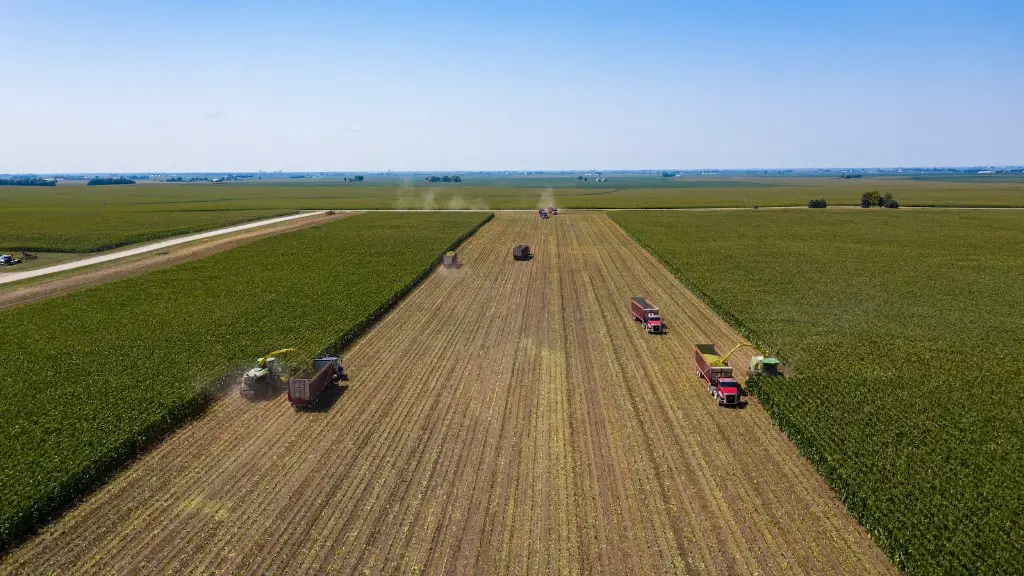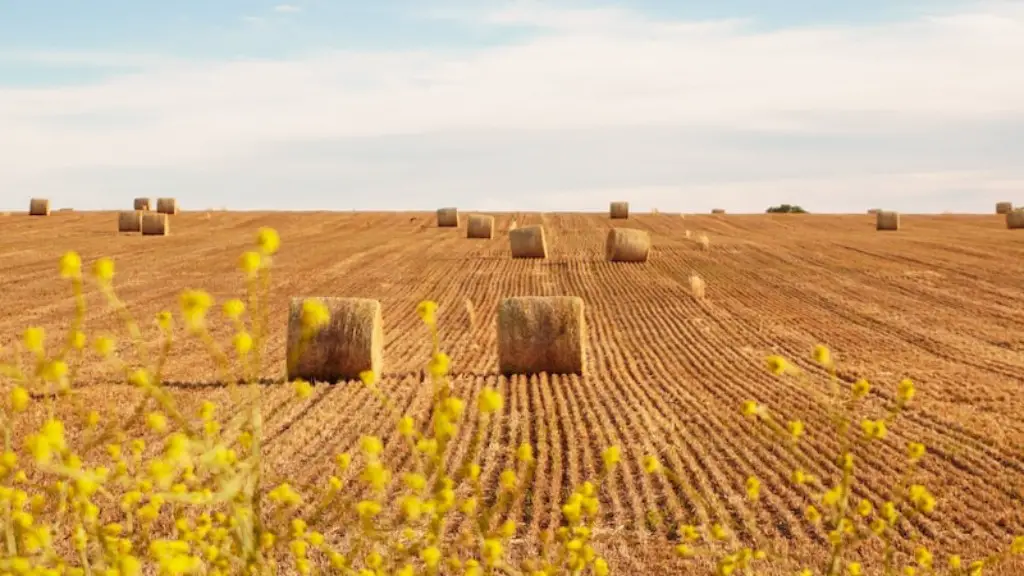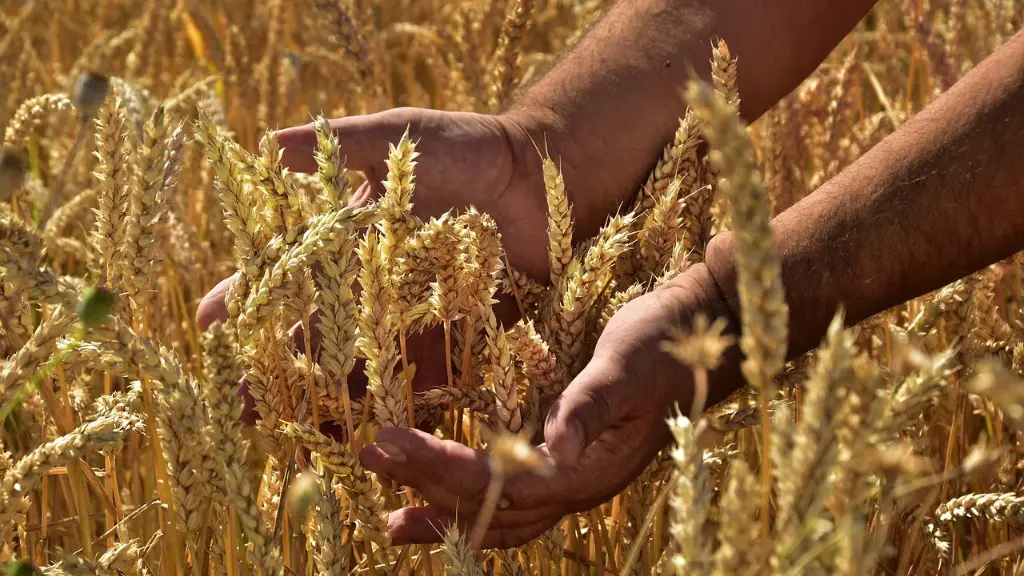Most plants that are used in agriculture are diploid, meaning they have two sets of chromosomes. However, some plants are polyploid, meaning they have more than two sets of chromosomes. Polyploidy is often used in agriculture in order to create plants with desired traits. For example, if a farmer wants to create a plant that is larger and has more flowers, they may use polyploidy to create a plant that has four sets of chromosomes instead of two. This creates a plant that is bigger and has more flowers than a diploid plant.
Polyploidy is used in the field of agriculture in order to create plants that are sterile and do not produce seeds. This is done by artificially increasing the number of chromosomes in the plant’s cells.
What is polyploidy in agriculture?
Polyploidy is a major force in the evolution of both wild and cultivated plants. Polyploid organisms often exhibit increased vigor and, in some cases, outperform their diploid relatives in several aspects. Polyploidy has played a major role in the evolution of plants, and continues to be a major factor in the production of new plant varieties.
Polyploidisation is a process that is used in plant breeding in order to overcome the non-viability and infertility of interspecific hybrids. This process can be used to obtain seedless polyploid cultivars, as well as to increase resistance/tolerance to biotic and abiotic factors.
What is polyploidy breeding in crop improvement
Polyploidy is the introduction of extra sets of chromosomes into a species. This is often done in plant breeding in order to overcome the sterility of a hybrid species. For example, Triticle is the hybrid of wheat (Triticum turgidum) and Rye (Secale cereale). It combines sought-after characteristics of the parents, but the initial hybrids are sterile. By introducing extra sets of chromosomes, the hybrids become fertile and can produce offspring.
Polyploidy is the fusion of two or more genomes within one nucleus, resulting in each cell containing more than two pairs of homologous chromosomes. Polyploidy occurs in the majority of angiosperms and is important in agricultural crops that humans depend on for survival.
How does polyploidy affect plants and animals?
Polyploidy is a condition where an organism has more than two sets of chromosomes. It is found in some plants and animals, but is more common in plants. In animals, it is found in some fish, reptiles, and insects. Some scientists think that polyploidy might have to do with the increased complexity of animal body plans compared to plants. Others suggest that it may interfere with gamete formation, cell division, or regulation of the genome. However, there are some exceptions in fish, reptiles, and insects.
Polyploid crops are plants that have more than two sets of chromosomes. These crops make up a significant portion of the major food and fiber crops of the world, including wheat, potato, cotton, apple, peanut, citrus, and brassica oilseeds such as rape, canola, and Camelina. Polyploidy confers many advantages to plants, including increased size, vigor, and disease resistance.
What is the application for polyploidy?
Adaptive evolution among polyploids can provide significant insights into the evolutionary history of plants. This knowledge can then be used to develop more effective conservation methods. Crop domestication is one of the most important applications of polyploidy, as polyploids are often found to be high in vegetative content.
A polyploid is an organism that contains more than two sets of chromosomes. Polyploids are often found in plants, and they can have a variety of different effects on the plant’s phenotype. One common effect is that polyploids often possess improved traits, such as thicker, darker-colored leaves; larger, longer-lasting flowers and thicker petals; enhanced vigor; improved tolerances to environmental stresses, pests and pathogens; increased metabolite production. Additionally, polyploids may restore fertility in sterile wide hybrids. This is due to the increased number of chromosomes allowing for greater genetic diversity and thus the potential for more viable offspring. Polyploids are thus often prized for their improved traits and their ability to restore fertility.
Why is polyploidy common in plants
Polyploidy is a condition where an organism has more than two complete sets of chromosomes. This can happen as the result of nondisjunction during mitosis or meiosis. Polyploidy is common among plants, and has been a major source of speciation in angiosperms. Allopolyploidy, which involves the doubling of chromosomes in a hybrid plant, is particularly important.
Polyploidy is often accompanied with formation of improved varieties, developing sterile lines, restoring fertility in hybrids, enlargement and enhanced vigor, increasing allelic diversity and heterozygosity, etc. All of these benefits can help improve the health and productivity of crops and other plants.
What is the role of polyploidy in crop improvement biology discussion?
Polyploids are important in agriculture because they are often disease resistant and have desirable qualities. For example, polyploids are often larger in size and produce large seeds and fruits. By artificially induced polyploidy, it is possible to produce these same qualities in plants that would otherwise be susceptible to disease and pests.
These genes were expressed at high levels during the day, which led to increased photosynthesis, higher amounts of chlorophyll, and greater starch accumulation in the hybrids and polyploids. This allowed them to grow larger than their parents.
What is polyploidy and why is it important
Polyploidy is a very important aspect of species evolution. It allows for the presence of multiple copies of identical or similar chromosome sets in one species. This makes it possible for the species to adapt and evolve in different ways. Polyploidy is also considered as an enabling force in evolution because it allows for different combinations of genes to be present in the same species.
Polyploidy is a condition where an organism has three or more sets of chromosomes. In plants, this can result in larger size fruits and seeds, as well as increased resistance to specific diseases.
Why is polyploidy more common in plants and animals?
Polyploidy is a condition in which an organism has more than two sets of chromosomes. Plant species are more likely to be polyploid than animals, because degenerate sex chromosomes (chromosomes that don’t contain much genetic information) are rare among plants. Animals may occasionally show polyploidy, but this is less common because degenerate sex chromosomes are more common in animals.
Polyploids have several advantages over diploids, including increased vigor due to heterosis, and increased resistance to deleterious mutations thanks to gene redundancy. Additionally, polyploids can reproduce asexually, which can be a very advantageous trait.
Is polyploidy good or bad in plants
Polyploidization is the process of increasing the number of chromosomes in a cell or organism. Polyploid plants often have superior properties compared to their diploid counterparts, making polyploidization a credible approach for crop improvement. Although the exact mechanisms are still not fully understood, the increase in chromosome number and additional genomic interactions and genetic alterations often result in superior properties in polyploid plants.
Polyploids have three major advantages over diploids: an increased number of alleles of a given gene, the masking of deleterious recessive mutations, and increased fitness. Polyploids are often better suited to their environment and have a higher chance of survival than their diploid counterparts.
Final Words
Polyploidy is used in agriculture to create new plant varieties that are sterile, have increased disease resistance, or are larger and more robust than their non-polyploid counterparts. Polyploidy is also used to create hybrid plant varieties that are more vigorous and disease-resistant than either parent plant.
Polyploidy is used in the field of agriculture to improve crop yields and to create new plant varieties. Polyploidy is a process that creates plants with extra sets of chromosomes, which leads to increased genetic diversity and higher yields. This process is used to create new plant varieties that are more resistant to pests and diseases, and that have higher nutritional value.





